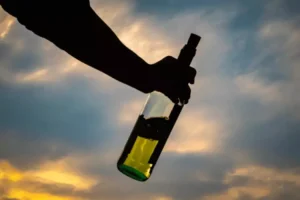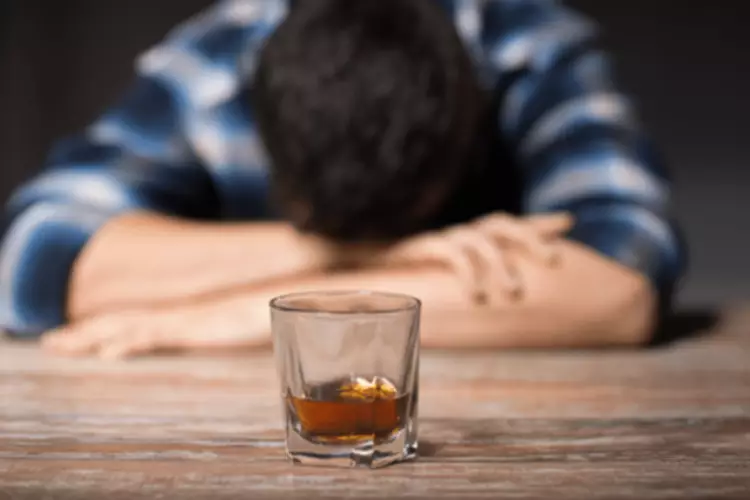75+ Free Mental Health Worksheets & Handouts

Another approach to music therapy is to encourage members to write songs and play them on an instrument. It could be a guitar, piano, flute or even the maracas or tambourine (which don’t require any musical ability). You can organize a sing-along or organize a favorite song show-and-tell.
Share this:
- These outcomes include significantly reduced drug and alcohol misuse, decreased criminal activity, and improved overall social and psychological well-being.
- Self-care includes creating a sleep routine, eating healthy meals, staying hydrated, exercising, and spending time with loved ones.
- Group therapy provides a nurturing environment where individuals can share their struggles, learn from each other, and build the skills needed to overcome addiction.
This enhanced confidence can promote recovery, reducing the risk of relapse. Initially, he felt uncomfortable about opening up to strangers, but he quickly https://ecosoberhouse.com/ realized the value of sharing his experiences. Hearing from others who had faced similar challenges helped Jack feel understood and less alone.
Overcoming Challenges in Group Activities for Relapse Prevention
Gone are the days of dull, monotonous sessions where participants struggle to stay awake. Today’s addiction recovery landscape is bursting with innovative approaches that breathe new life into the healing process. Addiction can damage self-esteem and confidence, leaving individuals feeling worthless. Group activities provide a forum for building self-esteem and confidence. Through positive interactions, constructive feedback, and shared triumphs, individuals may begin to recognize their strengths, boosting their self-worth.
How does Two Dreams use group therapy in addiction treatment?
At Honu House, we take a comprehensive approach to substance abuse treatment, including incorporating a variety of addiction group activities. Opening up and sharing personal experiences with strangers can be daunting, especially for individuals recovering from substance abuse. That’s why, it’s advisable to start with easy substance abuse group activities to build comfort and trust within the group while gradually progressing to more challenging activities. Group therapy doesn’t just provide a platform for individuals to meet with others with shared experiences. It also offers them the opportunity to build skills to combat triggers, resist cravings, and maintain sobriety. Music therapy is an excellent substance abuse group therapy activity because it provides a soothing environment for members to experience healing.

This sense of belonging and shared understanding can be transformative, fostering feelings of support, reducing isolation, and offering invaluable insights along the path to recovery. Substance abuse group therapy is a unique form of therapy counseling that’s used to treat substance use disorder (SUD) and addiction. Typically, substance abuse group therapy involves regular sessions with at least one therapist and includes several individuals who are being treated for the same health issue. Oftentimes, this type of therapy will be offered in a private practice setting, mental health clinic, community center, or hospital. Group therapy is an excellent alternative or addition to individual sessions because it offers a different kind of therapy approach with the added benefit of social support.
Ongoing support includes regular check-ins, additional resources, and feedback sessions to help peer leaders refine their skills and stay effective in their roles. Social gatherings that can serve as relapse prevention group activities include movie nights and game nights. They offer opportunities for social interactions in a healthy environment that encourages lighthearted fun and laughter. These activities reduce isolation and build supportive relationships in a fun, stress-free environment.


Peer-led initiatives also foster a sense of ownership and can lead to more dynamic and responsive group interactions. Additionally, creative group activities for relapse prevention serve as constructive distractions from cravings and substance abuse group activities negative thoughts, helping to prevent relapse. By channeling your energy into creative projects, you can develop new skills, form new social connections, cultivate positive habits, and find joy in your journey toward sobriety.
It’s amazing how thinking on your feet in a supportive environment can boost confidence in real-world interactions. TherapyByPro is an online mental health directory that connects mental health pros with clients in need. If you’re a mental health professional, you can Join our community and add your practice listing here. We have assessments, practice forms, and worksheet templates mental health professionals can use to streamline their practice.

Why are substance abuse groups effective?
- After completing a treatment program, individuals benefit from a well-structured aftercare plan.
- For all your therapy practice and substance abuse group activities needs Theraplatform can help.
- If the group is too big, you can split members into small circles or have them pair up and reflect on a list of questions together.
- Lock and key activities can be fun to break the ice and allow peers to connect and share their experiences.
They tend to have more structure than process groups and focus on a single topic. Two Dreams prefers to hold process groups in order to enhance the holistic treatment experience and to help clients equip themselves with the tools needed for their own recovery. Other goals of group therapy include gaining inspiration through the recovery of others, self-identifying as a recovering addicting, and examining core values. Participants support and nurture each other like a family by reinforcing good behaviors and helping each other cope during difficult tasks. They add structure to chaotic lives and provide a safe environment in which to practice newly developed skills. Group therapy is a common approach used in the treatment of substance use disorders.
- Process groups are focused on self-exploration and giving/receiving feedback.
- Group therapy sessions focusing on understanding addiction help individuals understand the science behind their condition.
- Group sessions can allow members to work through challenging emotions such as shame and guilt.
- A 2-page handout with journal prompts for recovery, based on material from The Sober Survival Guide (created with the author’s permission).
- Through mindfulness exercises, problem-solving simulations, and guided imagery, participants learn healthier ways to navigate life’s challenges while maintaining their sobriety.
A 1-page checklist with quick tips, self-soothing, and indulgent ideas for self-care. A worksheet for creating poetry; print, laminate, and cut out the words. A list with links to online grief support groups, forums, and communities. A 2-page handout with journal prompts for recovery, based on material from The Sober Survival Guide (created with the author’s permission). A 2-page handout with nine creative and soothing outlets for grief, such as music, dance, light therapy, and aromatherapy.






